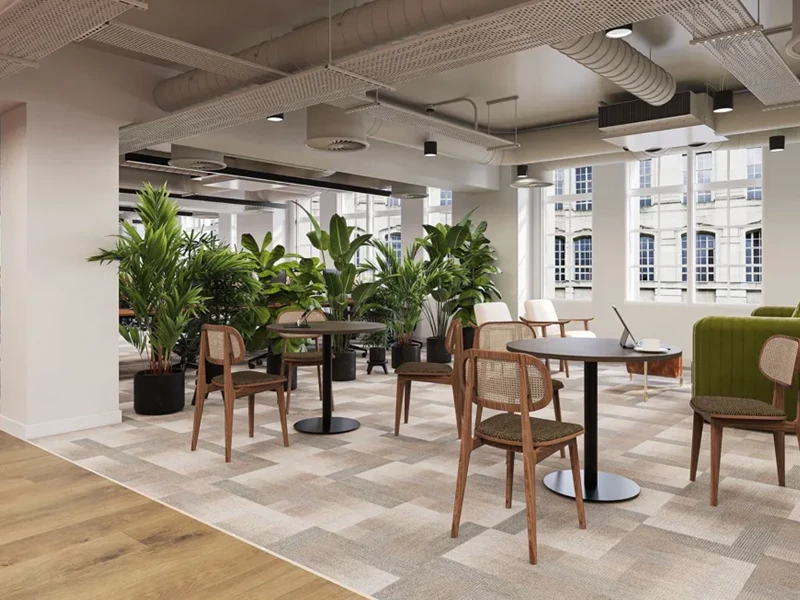The evolution of tech has become a fundamental game changer across quite literally every aspect of our home and work lives, particularly over the last two years. Many businesses have relied on technology to allow their operations to continue to function and, as a result, we have seen greater levels of technology incorporated into the workspace. For the flexible office sector, technology has been a driver of augmenting the services on offer as well as ensuring that spaces can operate smoothly. However, with so much choice on offer, it can be difficult to know which technology platforms will be most useful for space and users as each has different features and capabilities.
Below we identify some of the core digital services that flexible office space providers can offer to help manage space:
White Label App
A white label app allows operators to provide a suite of online tools under their own brand without needing to develop their own platform. It means that they can add their own logo and colour scheme, essentially allowing them to have their own store front for their space. This allows them to develop a stronger brand presence and a more cohesive product, as it is all under one banner. These apps are used to do multiple things from providing community message boards so members can be informed about events, answer FAQs, receive perks and discounts for local amenities and host newsletters. The idea is to foster a sense of community in the space.
Desk booking
Desk booking apps have become increasingly popular across the entire office market and allow users to book a desk in advance through the platform. Desk bookings can be either within a hot desking area for a coworking space or if you’re in a larger company, it can allow for booking of specific areas/desks within your office.
Meeting room booking app
Similar to the desk booking app, users can pre-book meeting room space using an app. This reduces the need for members to have their own meeting rooms and means that private office members can free up space for collaboration areas.
Payment processing
This technology offers the ability to carry our payment processing through the platform, allowing members to make payments directly. As a result, operators can manage invoicing directly through these systems, usually through integrations with other accounting software.
Building Access & Check-in
Many providers offer a digital check-in tracker and site access allowing members to check themselves in and out of the building, which helps to speed up the process and allows out of hours access.
Printer management
Printing can be managed through a platform with credits being issued to users allowing them to take ownership of and be accountable for the amount that they are printing.
Event & member management
This technology has the capability to organise member events and communicate with members directly through the platform, making it easier for providers to advertise the community events to members and build a community within their space. Some platforms even have social media pages for members within the community.
Delivery management
In some instances, providers are able to use technology to manage deliveries and notify members of their arrival.
Reporting
This feature has the ability to provide data visualisation and KPIs through a platform, providing information for operators on the usage of the space such as occupancy on any given day or the utilisation of space. This allows users to understand how best to make changed to their space, whether this is areas to clean or how to reshape the product based on utilisation.
There are numerous platforms that offer these services but some of the main ones used by the flex industry are; Ancards; Archie; Cobot; Coworkify; Coworks; Essensys; Nexudus; Office RnD; Optix and Satellite Deskworks. Some offer all of the services, while others offer a combination that are integrated with other packages.







